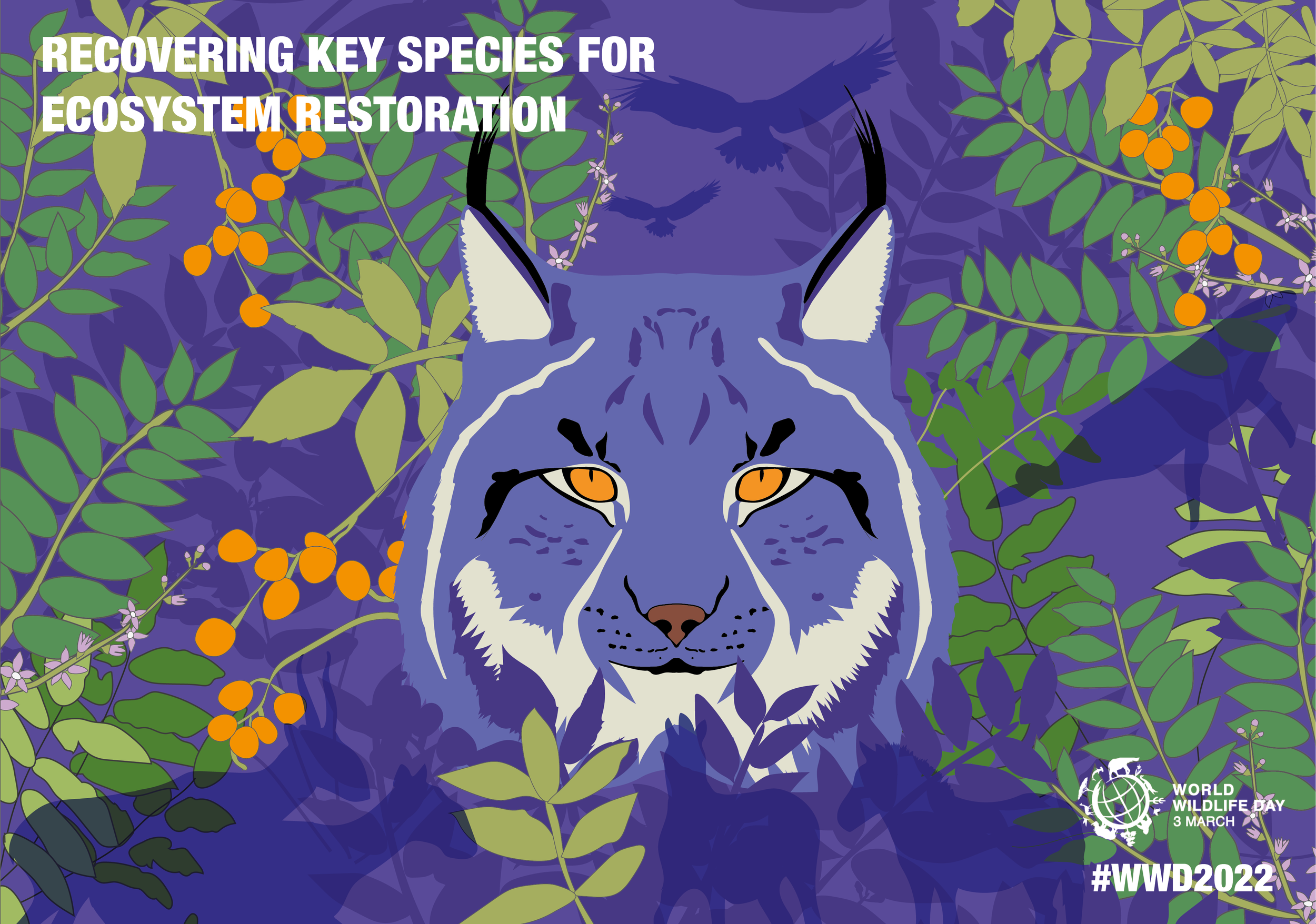RESTORING KEY SPECIES FOR ECOSYSTEM RESTORATION
This year’s theme for #WorldWildlifeDay 2022 is “Recovering key species for ecosystem restoration”. Learn more about what this means, and how Wild Tomorrow Fund is actively implementing ecosystem restoration for the benefit of threatened species at our wildlife corridor in KwaZulu-Natal, South Africa.
This year’s theme for World Wildlife Day 2022 is “Recovering key species for ecosystem restoration”. What does this mean?
Essentially, threatened species conservation and ecosystem restoration must go hand in hand. To save and recover threatened species, we must also save their wild homes -and vice versa. If we don’t save habitat, we won’t be able to prevent the extinction of threatened wildlife. Both conservation actions are urgent, and both must occur together.
It’s fitting that the United Nations CITES secretariat chose ecosystem restoration and threatened species protection as a combined theme for this year’s World Wildlife Day. We are excited as this is exactly the work we are doing at Wild Tomorrow Fund. The purpose of our wildlife corridor is to protect threatened species from extinction by restoring ecosystems - which includes reconnecting wild spaces via wildlife corridors.
We believe that all species are important in the web of life, from the smallest termite to the towering giants of the savanna, the giraffes and the elephants. If we pull at one thread in the web of life, we risk a major unraveling. The loss of each individual species from big to small causes a cascade of damage across ecosystems.
A vervet monkey reaching for seeds - a pooping seed disperser!
Without healthy soils and fungal networks, trees cannot send nutrients to nurture each other through tough times. Without monkeys jumping from tree to tree, the seeds of their favorite fruit trees won’t be distributed across forest floors. If a butterfly species disappears, this triggers a cascade of loss as specialized flowering plants closely linked to these butterflies also would not survive. Without hippos and their trail of hippo poop, river ecosystems will lack essential fertilizing nutrients. And without their footsteps creating hippo-foot-sized puddles on river banks, crocodiles and frogs won’t have puddles to incubate their young (check out our youtube video below). If we save elephants from poaching, but they do not have enough wild connected space remaining to move and find water in a drought, then they will not escape the impacts of climate change. Saving habitat and saving species are one and the same.
The good news is that the reverse of the butterfly effect is true - if we reintroduce lost species, we can start to restore biodiversity, to return some of what has been lost. If we actively restore ecosystems, we can give Nature the space and support she needs to stitch back together the connections that had been broken.
At our wildlife corridor in KwaZulu-Natal, South Africa, now an official protected area called The Greater Ukuwela Nature Reserve, we are fighting back for nature and threatened species by protecting, restoring, and reconnecting habitat in a global biodiversity hotspot. We are saving wild space and creating hope for 46 threatened species (and counting).
This year, as part of our active ecosystem restoration efforts, our all-woman restoration team, the Green Mambas, continue their hard work removing alien invasive plants. Their employment is also regenerative - providing much-needed income to support their families and communities. We are excited to launch our first afforestation project - in other words, planting trees! And these won’t be just any trees - we will be replanting native trees to restore South Africa’s most threatened forest type, the dry sand forest. Plus we continue our species reintroductions with a new arrival tomorrow - the African wildcat.
Ecosystem restoration, including species reintroductions, is hopeful and inspiring work, and we hope you will join us in support of our mission to save wildlife and wild places this World Wildlife Day.
Together, we can rewild the world.
Endangered species and wild things in the remaining wild places need us to care for them not selfishly, but selflessly, for their sake, the sake of everything and everyone who is not us, for the sake of beauty and all it implies." - Carl Safina (2021)


